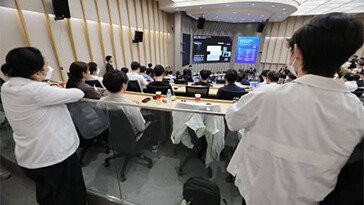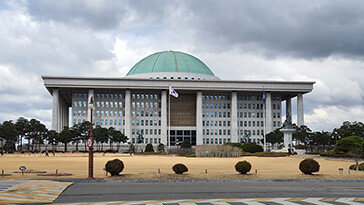Development and global financial safety net issues have almost been ironed out at the meeting of vice-finance ministers and sherpas that ended yesterday. The wording for the “Seoul Declaration” that will be adopted at the summit meeting is also being refined.
Regarding the exchange rate issue, G20 members have agreed to advance upon the results of the finance ministers’ meeting held in Gyeongju last month.
China, Germany and Brazil are also criticizing the United States, saying its plan to pump US$600 billion into its economy in order to devalue the dollar is indirect currency manipulation.
If disagreements about exchange rates aren’t resolved in Seoul, trade barriers will increase. This will inevitably rattle the stability of the world economy which has just begun to clamber out of a worldwide recession. As Chancellor Angela Merkel of Germany said, the biggest danger is protectionism.
Judging from the vice-finance ministers’ meeting, the Seoul summit will postpone making any decisions on current account guidelines until next year’s G20 meeting in Paris, but will introduce an early warning system that keeps a close eye on excessive trade surpluses or deficits. Currency wars shouldn’t be one-sided and end up with winners and losers, but yield concessions and compromises.
President Lee Myung-bak, as chaiman of the summit, should play a leadership role in order to win concessions at the bilateral meetings he will hold with member states of the G20.
The G20 should work on creating a global financial safety net, reforming the International Monetary Fund and outlining a practical program for sustainable and balanced development, Then it needs to see that it is all implemented.
A few discussions a year under rotating chairmanships won’t result in anything substantive. The G20 needs to be institutionalized as the highest global organization for economic discussions. As such, it should establish a permanent office to raise efficiency and ensure continuity and follow-through.
-
- 좋아요
- 0개
-
- 슬퍼요
- 0개
-
- 화나요
- 0개
-
- 추천해요
- 개


![[셀프건강진단]얼마 전부터 구강 안쪽이나 목에 혹이 만져진다](https://dimg.donga.com/a/464/260/95/1/wps/NEWS/FEED/Donga_Home_News/124673135.1.thumb.jpg)
댓글 0